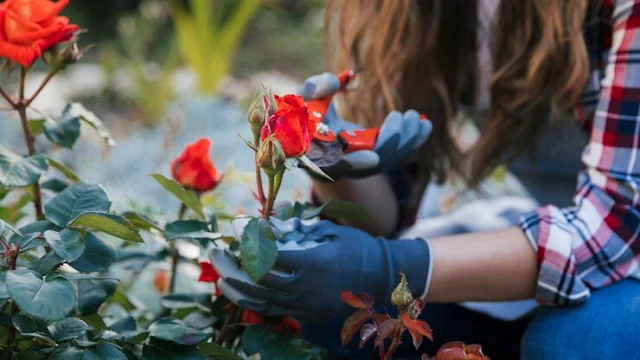How to grow rose from cuttings at home easy method
Growing Roses: From Reluctant Gardener to Rose Enthusiast
There was a time when I thought I’d never grow roses.
Honestly, they seemed like something for old English grandmothers with decades
of experience—not something I’d ever see in my garden.
Let’s dive into the world of roses: their wild family
history, the types you can grow, how to care for them, and why they might just
become your favorite plant in the garden.
Did you know that roses are part of one of the six most
economically important plant families in the world? The Rosacea family is
packed with more than just romantic blooms.
It
includes:
Apples, Pear quinces, Loquats, Almonds, Peaches, apricots,
plums, cherries, Strawberries and blackberries
Growing
Roses Isn’t Just for Experts
When I used to picture rose growers, I imagined someone with
decades of experience, whispering to their flowers in an English countryside.
But roses are not as difficult as they seem.
There are over 30,000 cultivars of roses, with varieties
that thrive in USDA zones 3 to 10+. That means roses can grow almost anywhere,
from cold northern climates to sunny tropical zones.
Own Root vs. Grafted Roses: What’s the Difference?
Grafted
Roses
Most roses you’ll find in stores are grafted: a desirable
rose variety is attached to a rootstock. This gives benefits like stronger
disease resistance or faster growth, but it comes with one downside—if new
shoots grow from below the graft, they won’t be the rose you expected.
Own Root
Roses
That’s why I’m so excited about own-root roses—like those
from Heirloom Roses, the sponsor of this journey. With own-root roses, the
entire plant is genetically the same. Every new shoot? It’s the same beautiful
rose. No surprises, no maintenance of graft lines. Just a thriving, consistent
plant.
Types of
Roses You Can Grow
1. Hybrid Tea Roses
- The most classic and well-known
- Large, single blooms on long stems
- Great for cutting and bouquets
- 3–6 feet tall, needs some winter protection
2. Floribunda Roses
- Derived from hybrid teas
- Smaller than hybrid teas, but bloom in clusters
- Great for pots and cut flower gardens
3. Grandiflora Roses
- A cross between hybrid tea and floribunda
- Big, bold, and beautiful
4. Miniature Roses
- Perfect for containers, patios, or lining paths
- Stay under 2 feet tall
- Tiny, adorable versions of classic roses
5. Climbing/Rambling Roses
- My personal favorite!
- Don’t climb like vines—they need support or trellises
- Can reach 9–10 feet tall or more
- A stunning vertical statement in any garden
6. Shrub Roses
- Great for hedges or filling horizontal space
- Very tough, weather-tolerant, and disease-resistant
- Awesome for landscaping or “keep-out” areas along paths
Final Thoughts: Embrace Your Inner Rose Gardener
Whether you’re growing on a homestead, a suburban patio, or
a balcony, roses are totally within your reach. I’ve gone from rose skeptic to
rose fanatic—and I hope this guide inspires you to give them a try.
I’m especially excited about the own root roses from
Heirloom Roses I’m planting this season. They’re reliable, gorgeous, and
low-maintenance—everything you want from a flower.














No comments:
Post a Comment